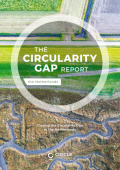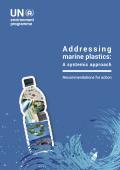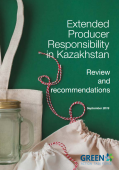
This report recommends a wide range of ways in which the economy of the Netherlands can pivot away from its linear habits across four key sectors: agriculture, construction, manufacturing, and energy.

This report identifies gaps to address marine plastics at each value chain stage and recommends actions to achieve a circular economy for plastics at the global level.
Projections estimate that between 2000 and 2050, the world population will grow 50 percent and global energy and materials use will grow 300 percent. Therefore, the strategic importance of materials is causing many people to look carefully at all aspects of the material lifecycles that comprise our industrial practices and consumer habits.
This report discusses materials management—how best to provide for human needs and prosperity while using fewer materials, reducing toxic products, and recovering more of the materials used. It includes background information on material usage within the United States, describes challenges related to sustainability and environmental impacts, and provides an analytic framework for materials management. The report also provides three key recommendations for achieving sustainable materials management:

This report analyses the current legal framework and operational set-up for Extended Producer Responsibility (EPR) in Kazakhstan and makes recommendations for strengthening and improving the current system further.
The Nordic countries rank high in international reports of nations' progress towards the Sustainable Development Goals (SDGs). Along with other industrialised countries, however, the Nordic countries have been ranked poorly in their progress towards SDG12, which concerns sustainable consumption and production. This report assesses Nordic countries’ progress towards SDG12, looks closer at their main challenges in achieving SDG12, and identifies recommendations that Nordic national governments and the Nordic Council of Ministers can adopt to accelerate progress in areas that are currently lagging.
